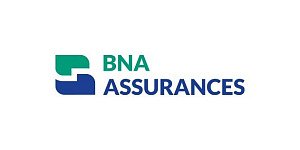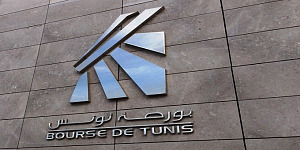Fitch Ratings has affirmed Arab Tunisian Bank's (ATB) Long-Term Foreign- and Local-Currency Issuer Default Ratings (IDRs) at 'B+'. The Outlooks remain Negative. Fitch also affirmed the bank's Viability Rating (VR) at 'b-'. A full list of ratings is provided below.
The Negative Outlook reflects the Outlook on Tunisia's 'B' sovereign rating. A downgrade of the sovereign rating would likely trigger a revision of the 'B+' Country Ceiling, forcing a downgrade of ATB's Long-Term IDRs.
KEY RATING DRIVERS
IDRS AND SUPPORT RATING
ATB is strategically important to its 64.2% shareholder and parent, Jordan-based Arab Bank Plc (AB, BB/Negative), given the latter's strategic focus on the Middle East/North African region. ATB is one of AB's largest subsidiaries abroad and fulfils its parent's objective of maintaining a strong presence in North Africa. Without any transfer and convertibility risks constraint (as reflected in Tunisia's Country Ceiling of 'B+'), ATB's Long-Term IDRs would be notched down once from AB's. Transfer and convertibility risks may restrict the subsidiary's ability to use parental support to service creditors.
We rate ATB's Foreign- and Local-Currency IDRs at the same level because in the event of intervention in the banking sector, our assessment is that authorities would make no distinction between the imposition of losses on creditors in local or foreign currencies. It is our view is that the risks to bank creditors in local and foreign currencies are equal given Tunisia's weak operating environment.
VR
ATB operates exclusively in Tunisia where real GDP contracted 8.6% in 2020 due to pandemic-related shock. Fitch expects the economy to return to 4% growth this year, but we see downside risk to our baseline scenario, given the evolving impact of the pandemic shock and uncertainty around the duration of containment measures, which have affected domestic economic activity as well as renewed social and political tensions.
ATB is a second-tier bank with a deposit market share of around 8.3% and it lends mainly to large corporates (around 47% of end-2020 loans), SMEs (19%), retail and very small companies (23%), and public-sector companies.
The stock of impaired loans is rising and ATB's unconsolidated Fitch-calculated impaired loans/gross loans reached 14.2% at end-2020 (end-2019: 12.5%), slightly above the sector average. Measures allowing corporate customers to defer loan-servicing commitments and encouraging banks to restructure loans where necessary were extended until September 2021. This will slow the recognition of new impaired loans in the near term. Borrowers' ability to recover and resume debt servicing will largely depend on the extent of economic recovery in Tunisia, travel restrictions and global economic trends. Our outlook on ATB's asset quality remains negative.
ATB's core capitalisation metrics remained weak in 2020. The bank's unconsolidated Fitch core capital (FCC)/risk-weighted assets (RWAs) was 8.5% (end-2019: 8.4%). Unreserved impaired loans represented a high 69% of FCC (end-2019: 55%) and our view is that capitalisation is low and buffers are small. ATB's large net short open foreign-currency position at 2.7x equity at end-2020 also weighs on the bank's capitalisation profile. We understand from management that they target to decrease it by end-2021, to be in line with the regulatory limit of 10% of equity.
ATB's regulatory capital ratio improved to 12.4% at end-2020 (end-2019: 10.4%), boosted by the issue of a TND100million subordinated bond on the domestic market in 4Q20. Loan growth was high in 2019 and 2020 (16% and 7%, respectively) which is also putting pressure on capitalisation. Dividends will not be distributed on 2020 profits, in line with regulatory guidelines, and we take a positive view of measures to preserve capital.
ATB is still profitable despite the challenging operating environment, but impairment provisions materially increased in 2020, in line with the Central Bank of Tunisia's (CBT) tighter guidelines in the calculation of collective provisions. We understand from management that volume growth is important if the bank is to improve its cost-efficiency ratios, but rapid growth may increase credit risk under current conditions. Loan impairment charges are therefore likely to continue to put pressure on operating performance.
Funding and liquidity are rating strengths for ATB and the outlook for these factors is stable. The bank's deposits are evenly split between retail and corporate customers, are stable and not overly concentrated by individual customer. The bank's strategy is to reduce reliance on corporate deposits while increasing inflows of stable and lower-cost retail deposits. Local-currency liquidity conditions eased during 2020 and ATB has lowered its reliance on CBT's finance, which is now around 1% of total funding (end-2019: 10%). ATB's Fitch-calculated loan-to-deposit remained adequate at 93% at end-2020 (versus CBT's maximum 120%).








































